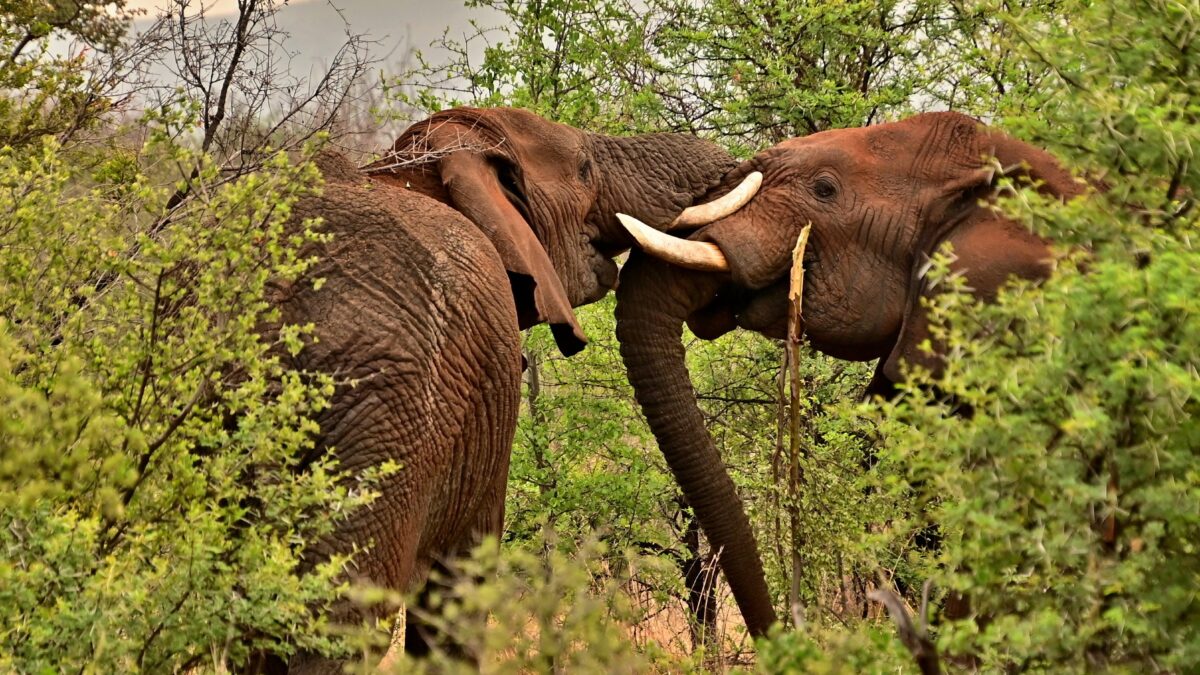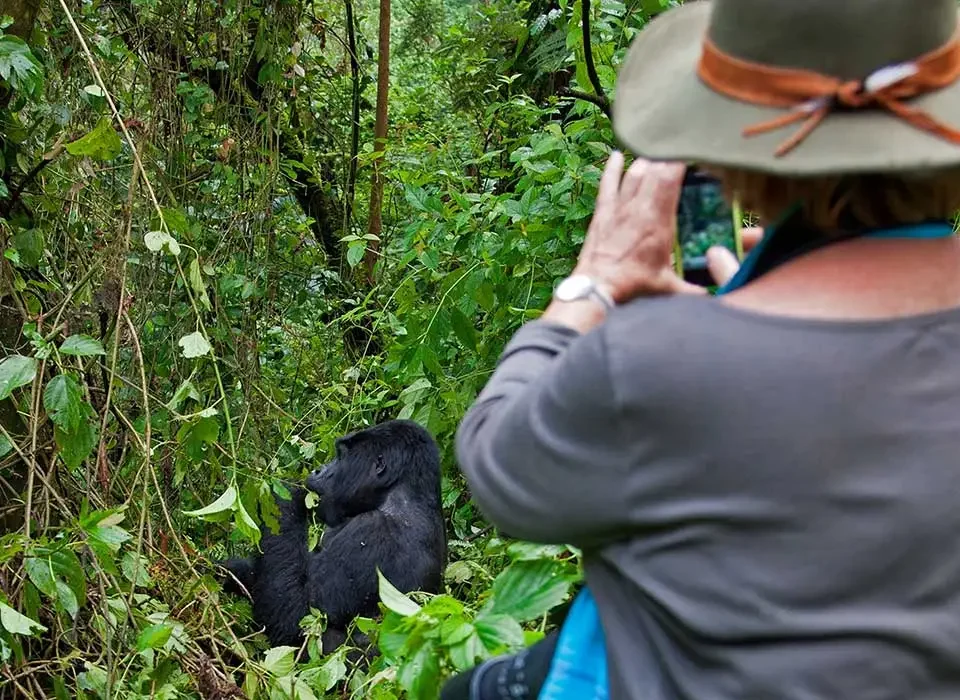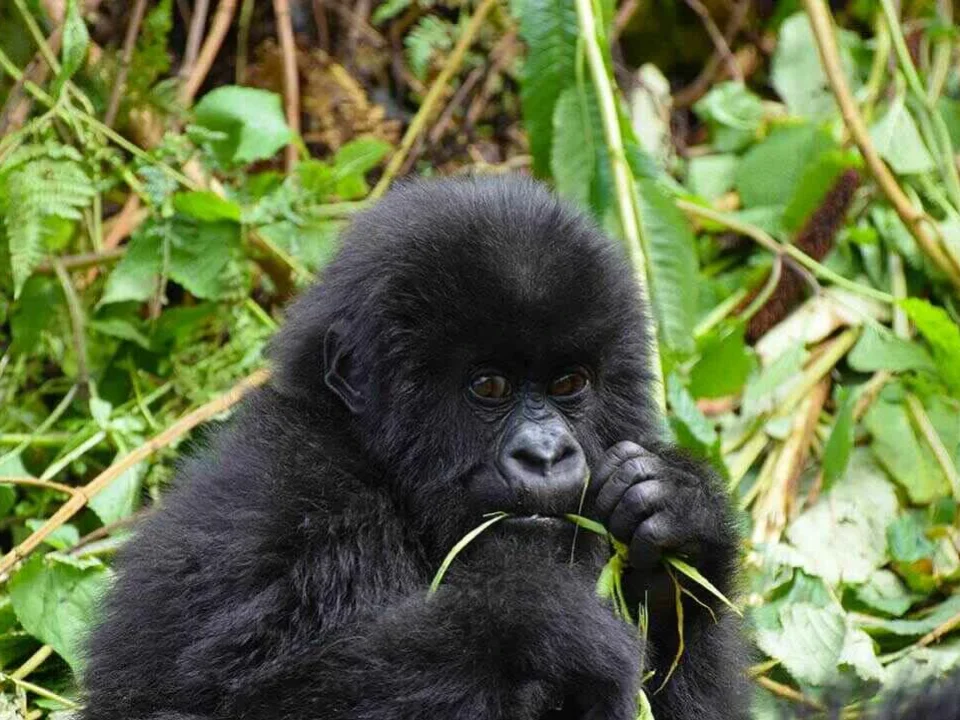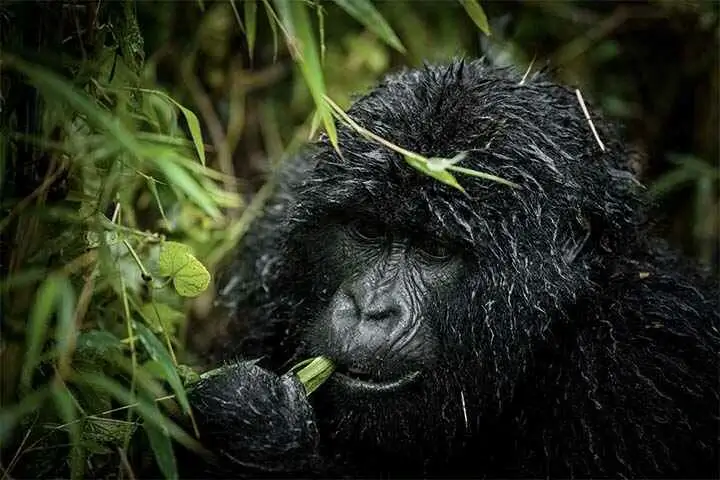
Top 10 National Parks to Explore in the Democratic Republic of Congo
November 7, 2024
Where to Find the Best Wildlife Photography Opportunities in Uganda
November 7, 2024Planning a safari is a thrilling prospect, but with so many options available, finding the perfect safari package can feel overwhelming. With a variety of destinations, activities, budgets, and types of experiences, knowing what to prioritize ensures a memorable adventure tailored to your preferences. This guide will walk you through everything you need to consider when selecting a safari package, helping you craft a journey that aligns with your interests, physical comfort, and expectations.
Identify Your Safari Goals
Before choosing a package, it’s essential to clarify your primary reasons for going on a safari. Whether you’re drawn to wildlife viewing, cultural immersion, relaxation, or adventure, identifying these motivations will make it easier to choose a package that matches your goals.
Wildlife Viewing
If your primary aim is to see specific animals—like the Big Five (lion, leopard, elephant, buffalo, and rhino)—consider packages in areas known for rich wildlife sightings. Different parks and reserves across Africa have unique ecosystems and animal populations, so your choice of destination can significantly impact your experience.
Cultural Experiences
Are you interested in interacting with local communities? Many safari packages include cultural experiences like village tours, traditional dances, or craft markets. These experiences provide insight into the region’s people, history, and way of life.
Adventure Activities
For thrill-seekers, some safari packages include activities like bush walks, hot air balloon rides, white-water rafting, or mountain climbing. Consider a package that offers these additional experiences if you want to mix in adventure with your wildlife encounters.
Relaxation
If your safari is as much about relaxation as it is about exploration, look for packages that include luxury lodges or tented camps with amenities like spas, pools, and fine dining. These packages often have a slower pace, allowing you to unwind in a serene natural setting.
Choose the Right Safari Destination
The destination of your safari significantly impacts what you’ll see and do. The most popular African safari destinations include:
- Kenya: Known for the Great Migration in the Maasai Mara.
- Tanzania: Home to Serengeti National Park and Mount Kilimanjaro.
- South Africa: Offers a mix of safari experiences and modern amenities.
- Botswana: Known for its pristine wilderness, especially the Okavango Delta.
- Uganda and Rwanda: Famous for gorilla trekking experiences.
- Namibia: Known for unique desert landscapes and dramatic scenery.
Each country and region has unique wildlife, ecosystems, and cultural elements. Researching each destination’s peak season, climate, and wildlife ensures a match with your ideal safari experience.
Determine the Best Time of Year to Go
The time of year greatly affects wildlife visibility and the overall safari experience. Africa’s seasons influence animal migrations, breeding patterns, and behaviors, which in turn affect what you’re likely to see.
Dry Season (May-October)
The dry season in most safari regions is usually considered the best time for wildlife viewing. Animals gather around water sources, making sightings easier, and the vegetation is less dense. However, it’s also the busiest and most expensive season.
Wet Season (November-April)
The wet season offers lush landscapes, fewer crowds, and lower prices. Many animals give birth during this time, providing opportunities to see young wildlife. Birdwatching is also at its best during the wet season, as migratory birds arrive. However, some areas become inaccessible due to rains, and certain animals may be harder to find.
Select the Type of Safari
The type of safari influences how you explore the wilderness, where you stay, and how much freedom you have during your trip. Here are some popular types of safaris:
Guided Safari
Most first-time safari-goers choose guided safaris. These include experienced guides who provide knowledge of animal behavior, plant life, and navigation. Guided safaris can be customized based on your preferences and usually include transportation, meals, and lodging.
Self-Drive Safari
Self-drive safaris are an option in some destinations, like South Africa’s Kruger National Park. They offer more flexibility, allowing you to explore at your own pace. However, self-drive safaris require extensive planning, and you must be comfortable navigating on your own.
Walking Safari
For a more immersive experience, a walking safari allows you to explore the wilderness on foot, accompanied by a trained guide and ranger. Walking safaris offer a unique perspective on animal behavior and the ecosystem but may not be suitable for everyone due to physical demands.
Boat Safari
A boat safari takes you along rivers and lakes, offering a different view of the animals and landscape. Boat safaris are ideal for seeing water-dwelling animals like hippos, crocodiles, and a wide array of bird species.
Mobile Camping Safari
Mobile camping safaris involve moving from one campsite to another, often following the seasonal movement of animals. These safaris can range from budget to luxury and offer a chance to experience the bush up close.
Lodge-Based Safari
Staying at a lodge provides more comfort and stability, with daily game drives to explore the surrounding wilderness. Lodges vary widely in luxury level, so you can find options ranging from basic to ultra-luxurious accommodations.
Determine Your Ideal Level of Comfort
The level of comfort is a major factor when choosing a safari package, as it influences accommodation style, amenities, and overall atmosphere. Safari accommodations generally fall into the following categories:
Budget
Budget accommodations typically include simple campsites or basic lodges. They offer essential amenities but may lack extras. These packages are suitable for travelers looking for an affordable way to experience a safari.
Mid-Range
Mid-range accommodations include comfortable lodges and tented camps with better amenities and more personalized service. They balance comfort with affordability and are ideal for most travelers.
Luxury
Luxury safari packages offer high-end lodges, exquisite dining, and a high level of service. Some lodges are located in exclusive areas for more private wildlife encounters and often include amenities like spas and pools.
Ultra-Luxury
Ultra-luxury packages provide premium accommodations in exclusive settings. These include private safari vehicles, gourmet dining, and activities like helicopter flights. These packages offer unparalleled privacy, service, and exclusivity.
Plan Your Budget
Your budget is a critical consideration, as safaris can range from budget-friendly to ultra-luxurious. The main factors influencing safari costs include:
- Location: Some countries and parks are more affordable than others.
- Accommodation Type: Luxury lodges cost more than basic campsites.
- Season: High season prices are typically higher than those in the low season.
- Group Size: Group safaris cost less than private, customized experiences.
Tips for Budgeting
- Travel during the shoulder season to enjoy lower prices and good weather.
- Consider a group safari to share costs with other travelers.
- Opt for a lodge or campsite outside park boundaries for a more affordable stay with easy access to the park.
Consider Group or Private Safari Options
Group safaris are more budget-friendly and provide the chance to meet other travelers. However, private safaris offer more flexibility, privacy, and a customized experience, allowing you to shape the trip according to your interests and pace.
Group Safari
Joining a group safari helps reduce costs and allows you to share the experience with like-minded travelers. Most group safaris follow a fixed itinerary, so they’re best for travelers who don’t mind a structured schedule.
Private Safari
A private safari provides a tailored experience, including your own guide, vehicle, and customized itinerary. Although more expensive, a private safari is ideal for honeymooners, families, or anyone seeking a personalized experience.
Decide on the Duration of Your Safari
The length of your safari affects both your experience and your budget. While shorter safaris (3–5 days) are ideal for seeing specific parks or regions, longer safaris (7–14 days) allow for a more comprehensive experience. Consider how many parks or regions you want to visit and whether you prefer a fast-paced or leisurely itinerary.
Evaluate Your Physical Condition
Safaris often involve varying levels of physical activity, so it’s essential to select a package that aligns with your fitness level. Walking safaris, mountain treks, or certain adventure activities require a moderate to high level of fitness, whereas lodge-based safaris with vehicle game drives are suitable for all fitness levels.
Choose a Reputable Safari Operator
The quality of your safari experience depends heavily on the safari operator. A reputable operator prioritizes safety, knowledgeable guides, and responsible tourism practices. To choose a reliable operator:
- Read reviews from past travelers.
- Ask about the qualifications of the guides who will accompany you.
- Check the operator’s commitment to responsible tourism, including respect for wildlife, the environment, and local communities.
Plan for Additional Experiences
Many safari destinations offer unique experiences that enhance the adventure. Popular add-ons include:
- Hot air balloon rides: For a breathtaking view of the landscape and wildlife from above.
- Night game drives: Ideal for spotting nocturnal animals.
- Community visits: Provide insight into local culture and traditions.
- Photography sessions: With a professional guide for those interested in capturing high-quality photos.
Prepare for Health and Safety Requirements
Staying safe and healthy during your safari is essential. Some safaris require vaccinations, anti-malarial medication, or specific health clearances, so plan in advance:
- Vaccinations: Consult a doctor regarding necessary vaccinations for your destination.
- Malaria prevention: Many safari areas are malaria zones, so take preventive measures.
- Travel insurance: A comprehensive insurance plan is essential, covering medical emergencies, evacuation, and cancellations.
Consider the Ethical and Environmental Impact
Responsible travel is increasingly important to many safari-goers. Look for safari packages from operators who follow ethical and eco-friendly practices, such as:
- Conservation efforts: Supporting wildlife protection and anti-poaching programs.
- Community involvement: Engaging local communities and contributing to their welfare.
- Eco-friendly accommodations: Staying in lodges that minimize their environmental footprint.
Read the Fine Print
Before booking, carefully read the package details to understand what’s included and excluded. Look for information on:
- Meals: Some packages cover all meals, while others may only include breakfast.
- Park fees: Confirm if entrance fees are part of the package or an additional cost.
- Transfers and transportation: Ensure that airport pickups, transfers, and in-country travel are included.
- Cancellation and refund policies: Understand the policies to avoid unexpected costs if plans change.
Conclusion
Choosing the right safari package involves careful planning and consideration of your interests, comfort, budget, and ethics. By identifying your goals, selecting a suitable destination, deciding on the type of safari, and choosing reputable operators, you can create a tailored safari experience that meets your needs. Whether you seek adventure, relaxation, or a cultural immersion, the perfect safari package is out there waiting for you to discover.




